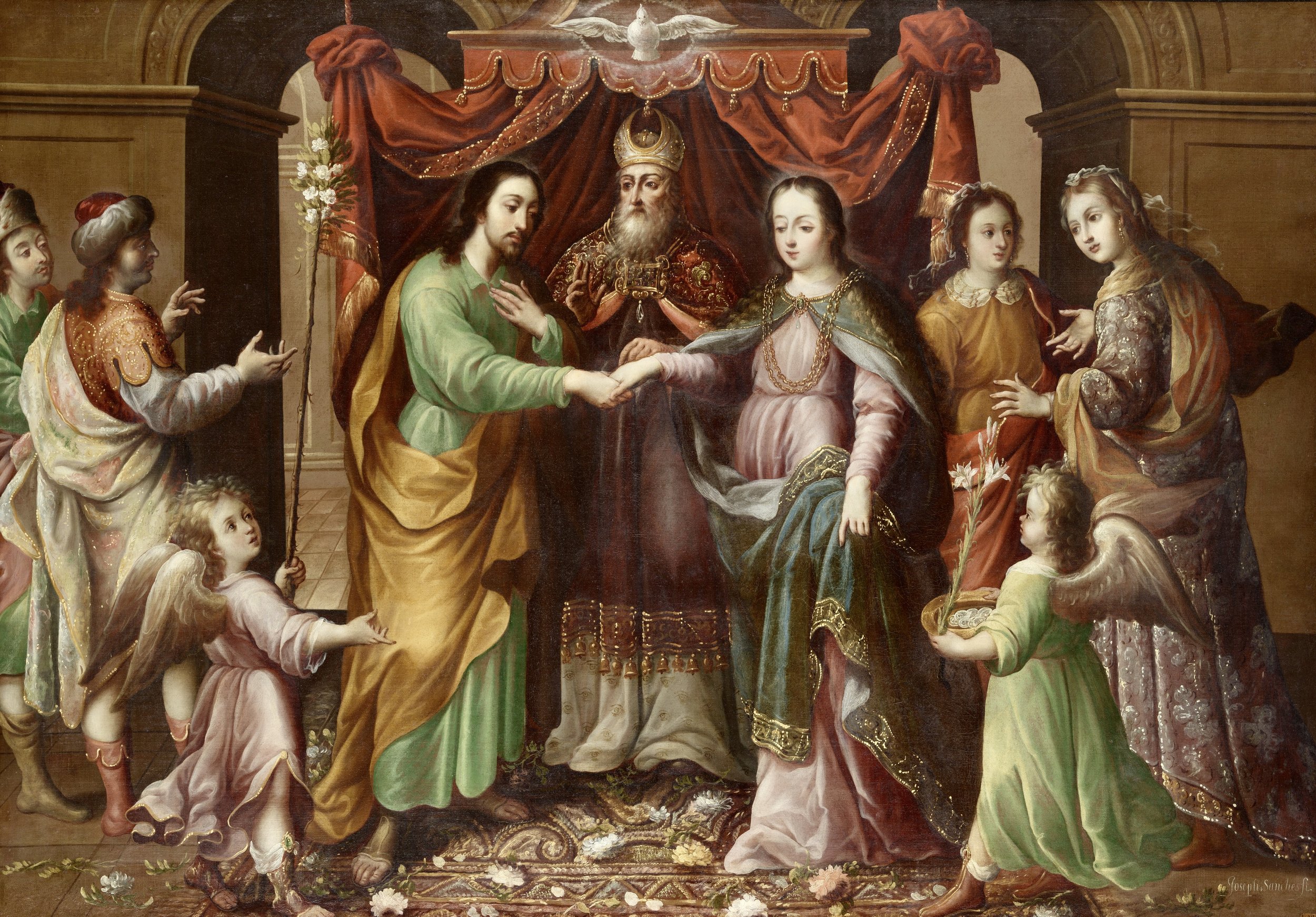Holy
Matrimony
The matrimonial covenant, by which a man and a woman establish between themselves a partnership of the whole of life, is by its nature ordered toward the good of the spouses and the procreation and education of offspring; this covenant between baptised persons has been raised by Christ the Lord to the dignity of a sacrament.
Catechism of the Catholic Church, 1601
Booking a Wedding
Congratulations on your engagement! To book a wedding, please contact our parish office.
Essential Properties of Marriage
The Catholic Church understands that in Holy Matrimony the bride and groom are not just giving their consent to a vague and unspecified union. The bride and groom are giving their consent to something very specific: Marriage.
Marriage has certain essential properties.
The Catechism explains that unity, indissolubility, and openness to fertility are essential to marriage.
Polygamy is incompatible with the unity of marriage;
Divorce attempts to separate what is indissoluble—what God has joined together;
The refusal of fertility turns married life away from its supreme gift—the child. (CCC 1664).
For matrimonial consent to exist, the bride and groom must be at least not ignorant that marriage is a permanent partnership between a man and a woman ordered to the procreation of offspring by means of some sexual cooperation. (CIC 1096 §1)
Cf. Jimmy Akin, Annulments: What You Need to Know (San Diego, CA: Catholic Answers, 2005), 13–14.
“When a husband and wife are united in marriage they no longer seem like something earthly, but rather like the image of God Himself.”

